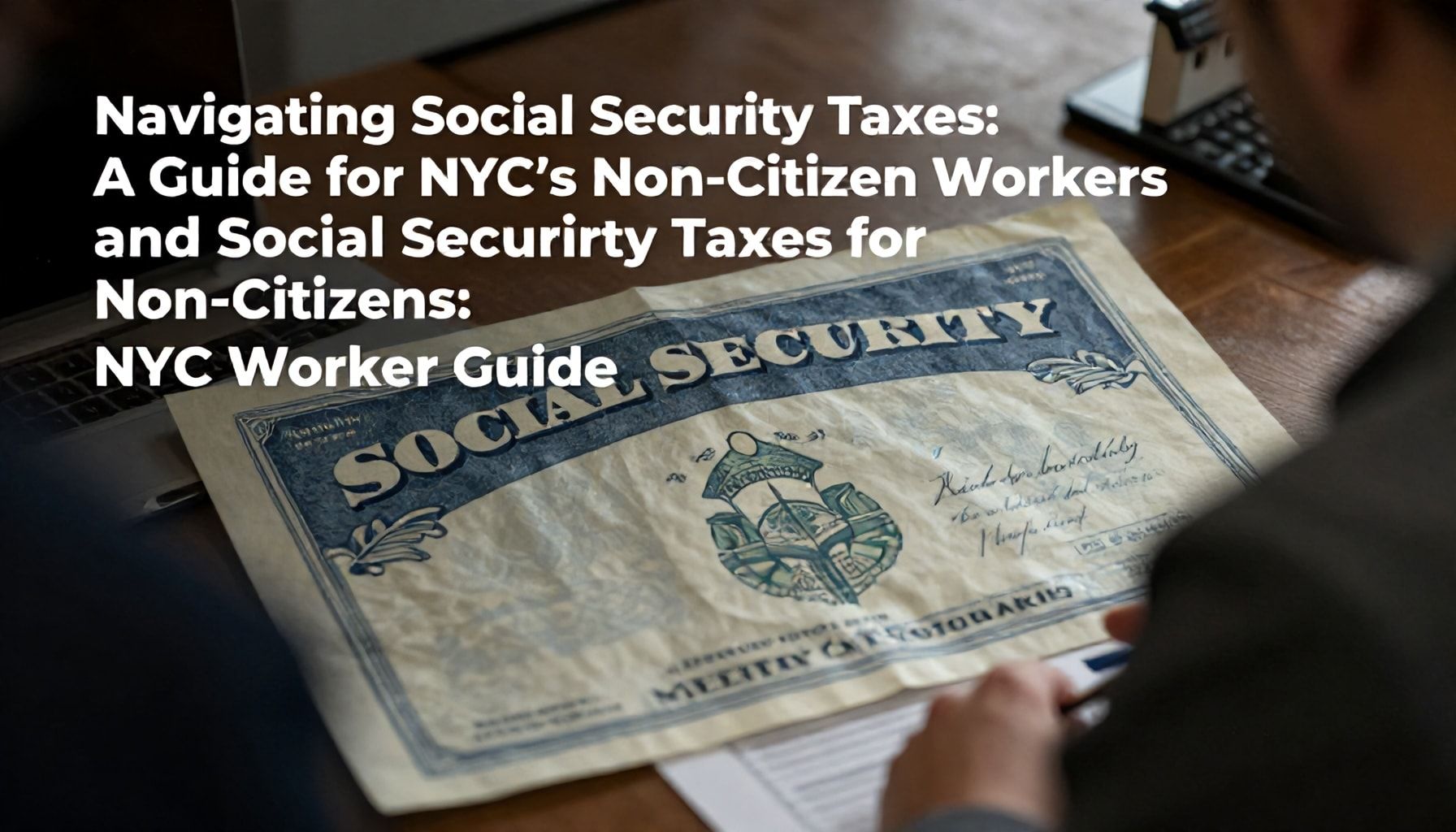New York City’s immigrant communities are the backbone of our city’s economy, from the bodega workers in Washington Heights to the restaurant staff in Flushing. Yet, navigating the complexities of U.S. taxes can be daunting, especially for non-citizen workers who may be unfamiliar with the system. With tax season upon us, understanding Social Security taxes is crucial for many of these workers. The “Social Security Taxes for Non-Citizens: NYC Worker Guide” aims to demystify this process, providing clear, practical information to help workers understand their obligations and rights.
For many New Yorkers, Social Security taxes are automatically deducted from paychecks, but the rules can be confusing for those who are not U.S. citizens. Whether you’re a green card holder, a visa worker, or undocumented, knowing how these taxes affect you is essential. This guide cuts through the jargon, offering straightforward advice tailored to NYC’s diverse workforce. From understanding tax residency to knowing your eligibility for benefits, this resource is designed to empower workers with the knowledge they need to navigate the system confidently.
Understanding Social Security Taxes for NYC's Non-Citizens
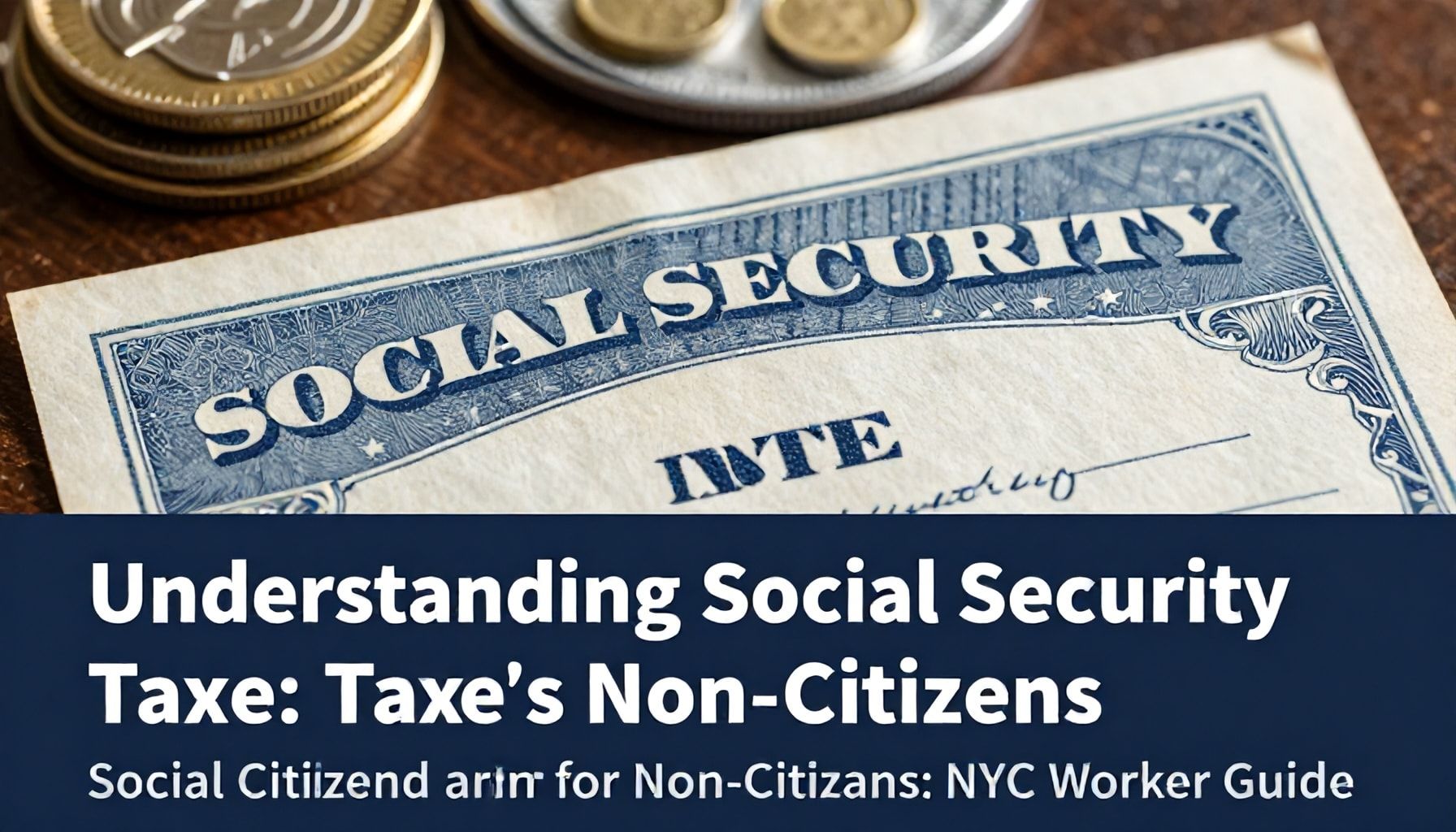
New York City’s workforce thrives on diversity, with nearly 3.1 million foreign-born residents contributing to the city’s vibrant economy. Among them, non-citizen workers often face unique challenges when navigating Social Security taxes. Understanding these complexities can make a significant difference in financial planning and legal standing.
Non-citizen workers in NYC, including those with green cards, work visas, or undocumented status, generally must pay Social Security and Medicare taxes, just like U.S. citizens. These taxes fund vital social safety nets, including retirement, disability, and survivor benefits. However, eligibility to claim these benefits depends on individual immigration status and work history. For instance, green card holders can qualify for benefits after meeting specific work requirements, while undocumented workers pay into the system but typically cannot access the benefits.
Navigating these rules can be daunting, but resources are available. Organizations like the New York Immigration Coalition and the Mayor’s Office of Immigrant Affairs offer guidance and workshops to help non-citizens understand their tax obligations and rights. “Many non-citizen workers are unaware of how their contributions affect their future benefits,” says Maria Rodriguez, a community advocate in Sunset Park. “Educating ourselves and seeking professional advice can make a world of difference.”
For those seeking more information, the Social Security Administration’s website provides detailed guidelines. Additionally, local nonprofits like the Brooklyn-based Make the Road New York offer free tax preparation services and legal consultations. By staying informed and utilizing available resources, NYC’s non-citizen workers can better navigate the complexities of Social Security taxes and plan for their financial future.
How Tax Rules Impact NYC's Diverse Workforce
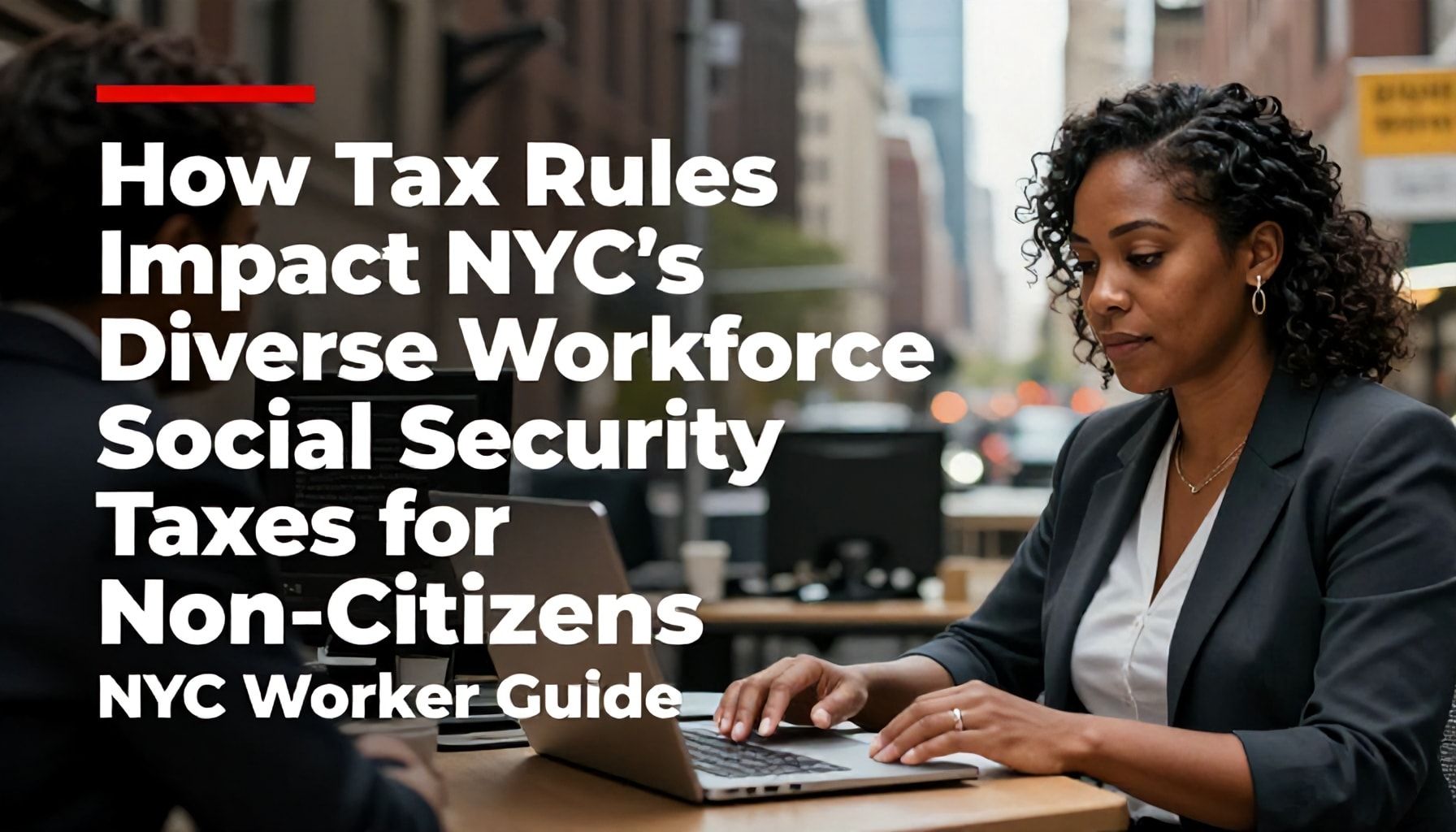
New York City’s workforce thrives on diversity, with non-citizen workers contributing significantly to the city’s economy. However, navigating the U.S. tax system can be challenging, especially when it comes to Social Security taxes. Unlike citizens, non-citizens face unique considerations, and understanding these rules can make a substantial difference in financial planning.
Non-citizen workers, including green card holders and those on work visas, generally must pay Social Security and Medicare taxes, just like U.S. citizens. These taxes fund vital social programs, but non-citizens may not always be eligible for the full range of benefits. For instance, undocumented workers pay into the system but cannot claim Social Security benefits. According to the Social Security Administration, millions of dollars in taxes are paid by non-citizens annually, yet many remain unaware of their eligibility for certain benefits.
One key consideration is the Totalization Agreement, which helps avoid double taxation for workers from countries that have such agreements with the U.S. For example, workers from Italy or Germany may qualify for exemptions, allowing them to pay taxes only to their home country’s system. NYC organizations like the CUNY Citizenship Now! provide free legal assistance to help workers understand their options. “Many non-citizens don’t realize they might qualify for exemptions or credits,” says Maria Rodriguez, a legal advocate in Sunset Park. “It’s crucial to seek guidance to ensure you’re not overpaying.”
For those eligible, claiming Social Security benefits requires meeting specific criteria, such as work credits and legal residency status. Non-citizens should consult resources like the NYC Department of Consumer Affairs or local nonprofits for personalized advice. Understanding these rules ensures non-citizen workers can navigate the system confidently, securing their financial future in the city they help build.
Key Changes Every Non-Citizen Worker Should Know
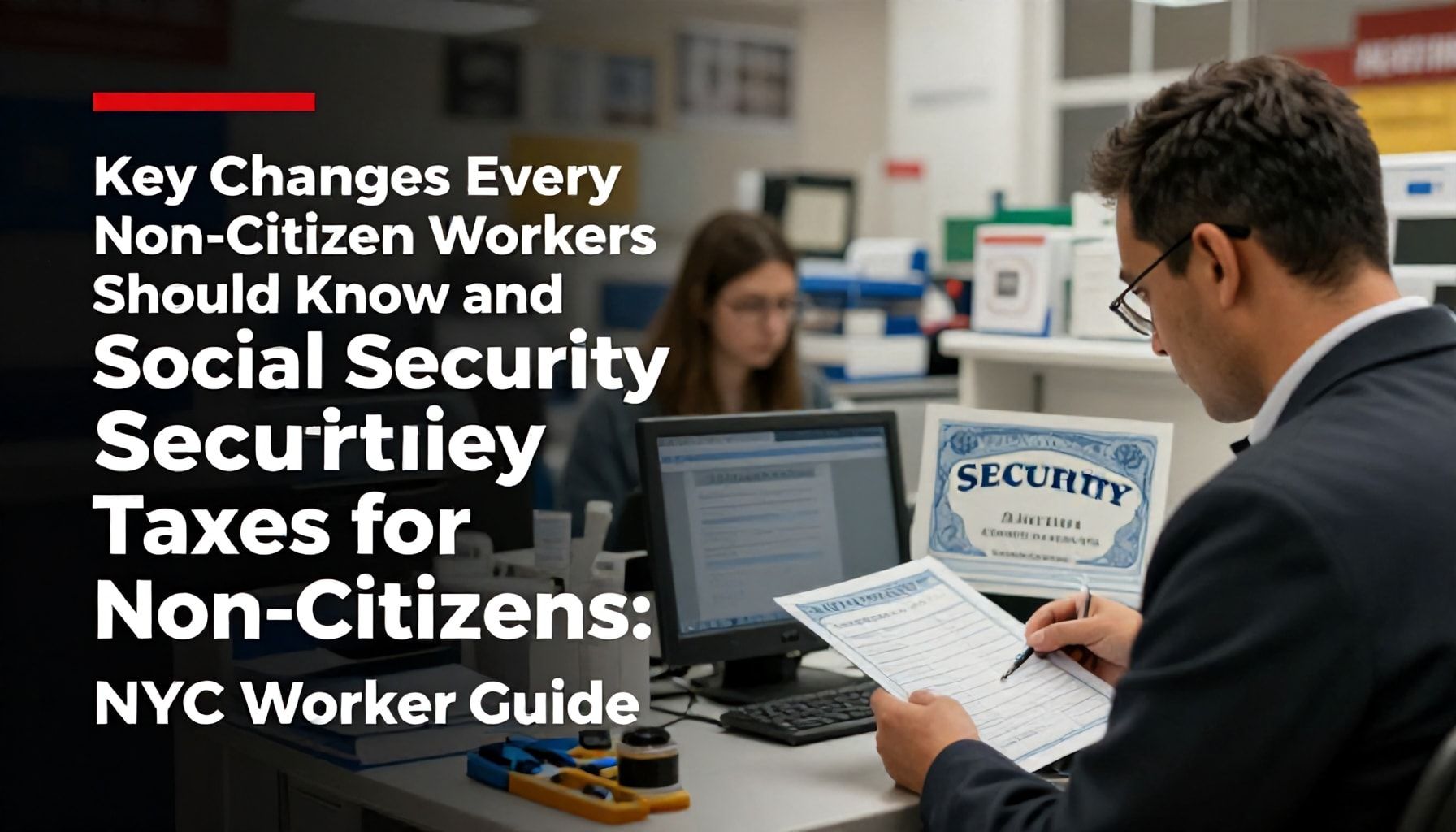
New York City’s workforce is as diverse as its neighborhoods, with non-citizen workers playing a vital role in industries from construction to healthcare. One area that often raises questions is Social Security taxes. Understanding how these taxes work can help non-citizen workers plan for the future and avoid surprises.
First, it’s essential to know that non-citizen workers, including those with visas or undocumented status, generally must pay Social Security taxes. These taxes fund retirement, disability, and survivor benefits. The current rate is 6.2% of wages up to $168,600, with employers matching this amount. However, the benefits aren’t always accessible to non-citizens. “Many workers don’t realize that they might not be eligible to receive Social Security benefits if they haven’t worked enough years or don’t have the right immigration status,” says Maria Rodriguez, an immigration attorney in Jackson Heights.
For those who qualify, benefits can be a lifeline. According to the Social Security Administration, as of 2022, over 4.4 million non-citizens received Social Security benefits, with New York State ranking among the top recipients. Workers in neighborhoods like Sunset Park and Flushing, where immigrant communities are strong, can find local organizations like the Chinese-American Planning Council and the Mexican American Legal Defense and Educational Fund offering guidance on navigating these complexities.
Another critical point is that some non-citizen workers might be exempt from Social Security taxes. For instance, those with A or G visas, like diplomats or international organization employees, often don’t pay these taxes. It’s crucial to consult with a tax professional or immigration attorney to understand individual circumstances. The NYC Mayor’s Office of Immigrant Affairs provides resources and workshops to help workers stay informed and make the most of their earnings.
Practical Steps for Navigating NYC's Tax System
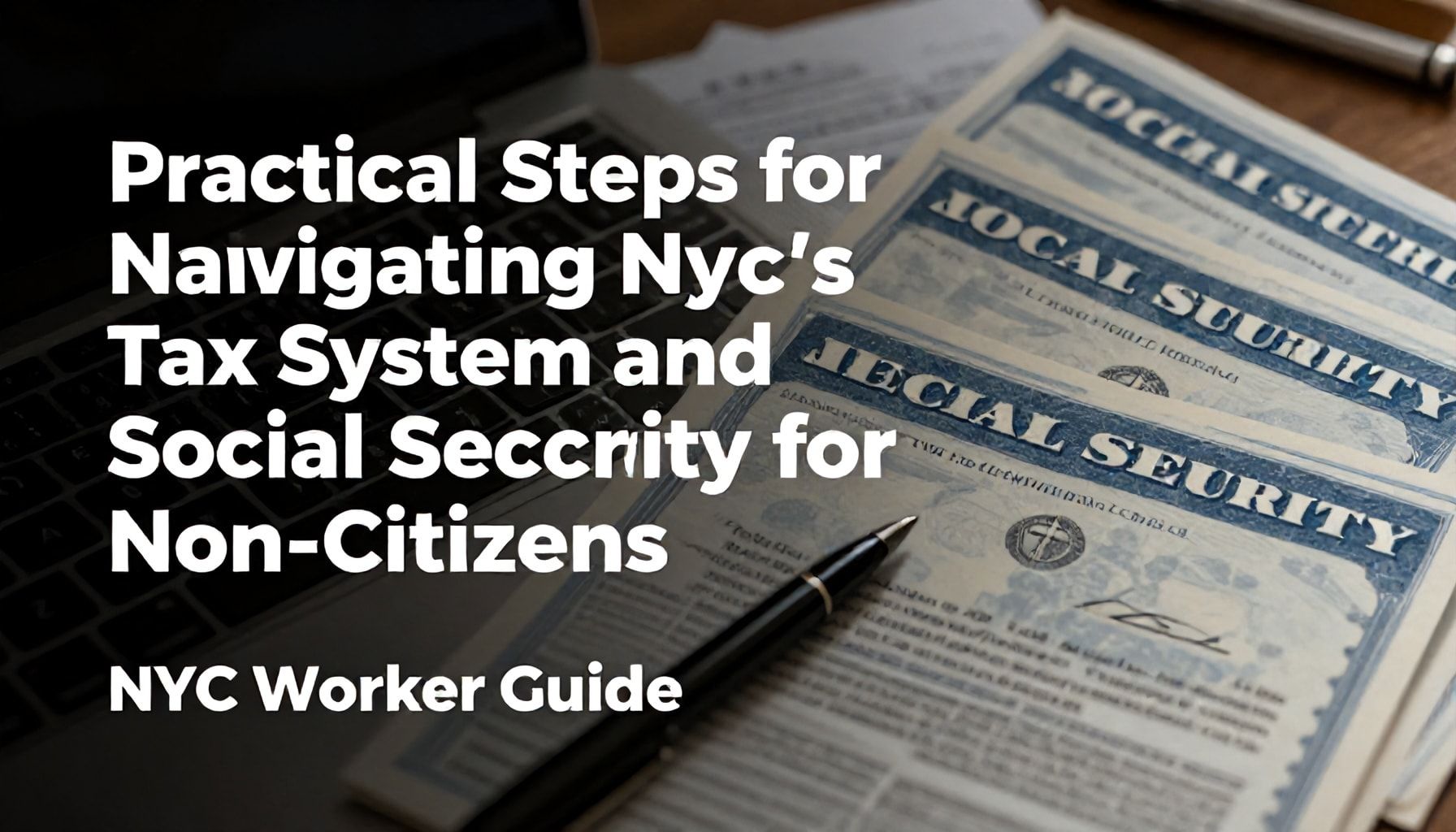
New York City’s workforce thrives on the energy and skills of its non-citizen residents. Yet, navigating the city’s tax system—especially Social Security taxes—can feel overwhelming. This guide breaks down key points to help non-citizen workers understand their obligations and rights.
First, know that Social Security taxes fund retirement, disability, and survivor benefits. Non-citizens, including undocumented workers, contribute to these taxes through payroll deductions. However, eligibility to claim benefits depends on immigration status and work authorization history. The Social Security Administration (SSA) provides detailed guidelines, but local organizations like the New York Immigration Coalition offer free, multilingual assistance to clarify these rules.
For those eligible, filing taxes correctly is crucial. The NYC Department of Finance emphasizes that accurate reporting prevents future complications. Non-citizens should use an Individual Taxpayer Identification Number (ITIN) if they lack a Social Security number. Organizations like the Tax Preparation for the Undocumented (TPU) program in Brooklyn help residents prepare returns at low or no cost.
Remember, New York City’s diverse communities face unique challenges. A 2023 report from the Mayor’s Office of Immigrant Affairs found that 37% of non-citizen workers in NYC struggle with tax-related questions. Whether you’re in Queens, the Bronx, or Staten Island, resources are available. For personalized advice, contact local nonprofits like Make the Road New York or the MinKwon Center for Community Action in Flushing.
What's Next for Non-Citizen Workers in NYC
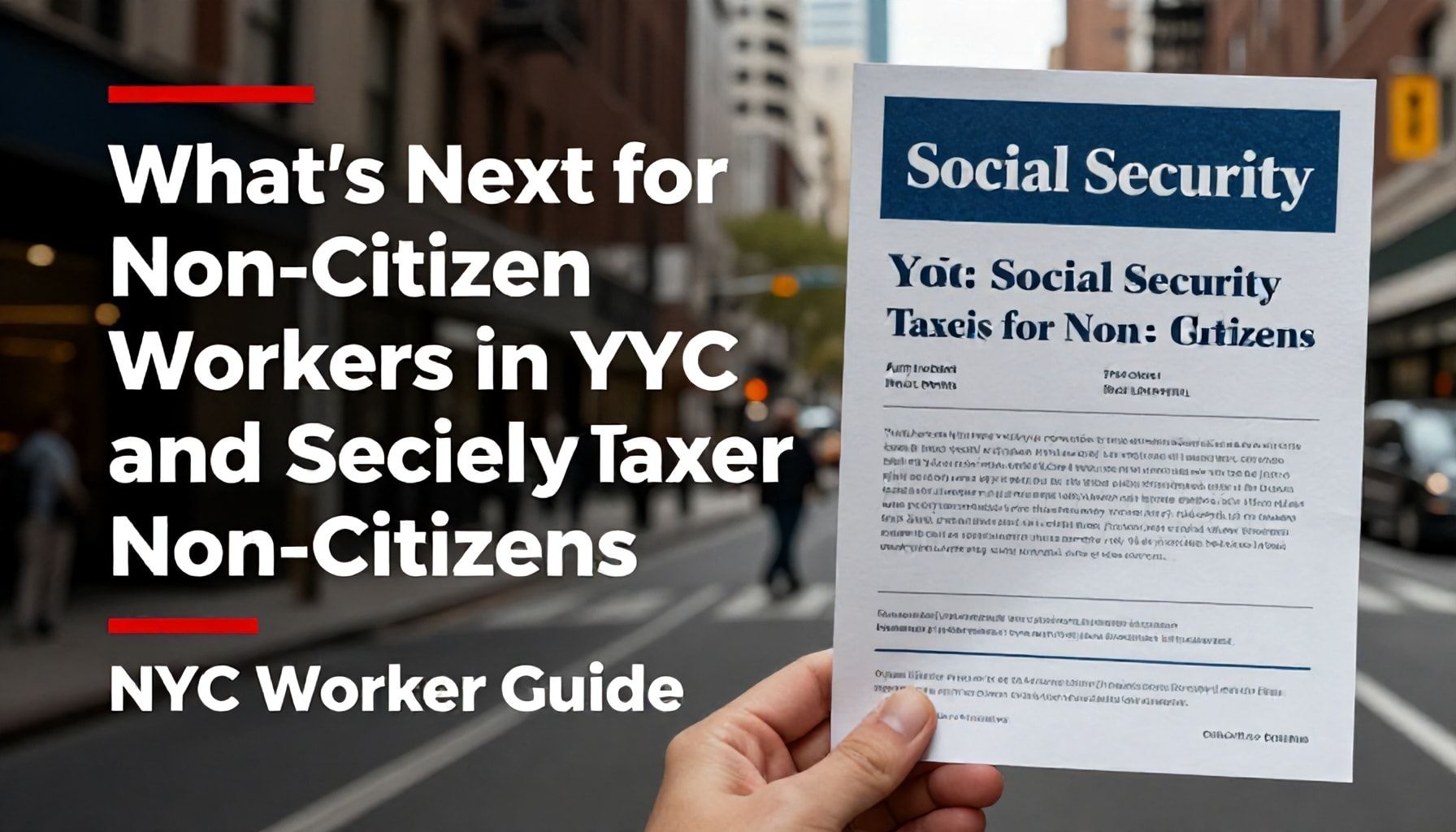
New York City’s workforce is as diverse as its neighborhoods, with non-citizen workers playing a vital role in industries from construction to healthcare. Yet, navigating the complexities of Social Security taxes can be daunting for those new to the U.S. system. Understanding these taxes is crucial for non-citizen workers to plan their finances effectively and secure their future.
Social Security taxes fund retirement, disability, and survivor benefits. In NYC, where the cost of living is high and many workers juggle multiple jobs, these benefits can provide a vital safety net. Non-citizen workers, including those with green cards, work visas, or those who are undocumented, may wonder how these taxes apply to them. Generally, if you work in the U.S., you’re required to pay Social Security taxes, regardless of your immigration status. However, the rules can be nuanced, especially for those with non-immigrant visas or those who have worked both in the U.S. and abroad.
According to the Fiscal Policy Institute, immigrants in NYC contribute significantly to the city’s economy and tax base. “Immigrants are net positive contributors to the Social Security system,” says David Dyssegaard Kallick, a senior fellow at the institute. “They pay in more than they take out, which helps to support the benefits of U.S. citizens.” For non-citizen workers, understanding their contributions and potential benefits is key. Resources like the NYC Mayor’s Office of Immigrant Affairs and local nonprofits such as the New York Immigration Coalition offer guidance and workshops to help navigate these complexities.
One common concern is whether non-citizen workers can claim Social Security benefits. The answer depends on various factors, including the type of visa held and the number of years worked. For instance, those with green cards or who have been granted asylum may be eligible. It’s also important to note that some countries have totalization agreements with the U.S., which can affect how Social Security taxes are applied. For personalized advice, consulting with an immigration attorney or a financial advisor familiar with non-citizen tax issues is recommended. Organizations like the NYC-based Legal Aid Society can provide low-cost or free legal assistance.
Navigating Social Security taxes can be complex, but with the right information and resources, non-citizen workers in NYC can make informed decisions. Whether you’re in Queens, Brooklyn, or the Bronx, understanding your rights and obligations is the first step towards financial security. By leveraging local resources and expert advice, you can ensure you’re on the right path to a stable future.
Understanding Social Security taxes is crucial for NYC’s non-citizen workers, ensuring they contribute fairly while securing their future benefits. With over 3 million immigrants in the city, knowing these tax rules protects hard-earned income and retirement plans. Start by reviewing your tax withholdings and consulting with a local nonprofit like the New York Immigration Coalition for personalized guidance. As NYC continues to champion immigrant rights, informed workers drive both personal and community prosperity.

